Buro HappoldÔÇÖs new leaders say that its mission is to improve the world. But can it really put ethics above profits as it expands globally? Here we ask the difficult questions
Buro HappoldÔÇÖs mission statement is pretty punchy. Some might say unrealistic. The consultancy aims to help solve the worldÔÇÖs problems by engineering not only buildings but entire cities and countries. ÔÇ£WeÔÇÖre trying to engineer better lives for people,ÔÇØ says Mike Cook, the new senior partner.
It is a noble sentiment. But can a top engineer really put saving the world on a par with the day-to-day task of staying in business? Buro HappoldÔÇÖs partnership model is central to its corporate values and has thus far enabled it to say no to acquisition approaches while other UK engineers are struggling to remain independent. ║├╔½¤╚╔·TV spoke to the new chief executive Paul Westbury and Cook, as well as outgoing founding partner Rod MacDonald, to see whether the firm can hang on to the ÔÇ£soulÔÇØ of the company, as they put it, created by MacDonald and others 35 years ago.
That sense of ÔÇ£soulÔÇØ is embodied in the idealistic aim of its new leaders to help developing countries grow more sustainably. But their dilemma is that this can mean working with regimes with a less than exemplary human rights record.
The line between improving quality of life around the world and running a profitable business must be a difficult one to walk at the best of times, not least at the tail end of a recession during a leadership change.
The changeover
Westbury and Cook have been promoted to the top jobs at Buro Happold more in the manner of US presidents, elected by the firmÔÇÖs partners, than traditional business leaders. They will be the first new leaders in six years, as their predecessors, Gavin Thompson and MacDonald, have finished the second and final of their three-year ÔÇ£termsÔÇØ as chief executive and senior partner respectively. This is a deliberate and planned strategy to quench Buro HappoldÔÇÖs demand for new blood. This is so the firm can be run by engineers, who will return to their first love after their time is up. ÔÇ£At the end of the term, we want to go back to our engineering,ÔÇØ says Westbury. ÔÇ£The firm canÔÇÖt afford to lose its best engineers to these big lumpy management roles forever.ÔÇØ
At some companies, senior executives lose their jobs only when there is a problem. At Buro Happold, leadership changes are built into the fabric of the company.
China and the moral dilemma
While the Buro Happold trio stress that the changeover does not mean a radical shift, there is little doubt that the company is changing focus naturally anyway - towards developing and emerging markets, where work is available.
ÔÇ£The problems that the world faces - urbanisation, population growth, scarcity of resources, scarcity of energy, price of energy - are big issues,ÔÇØ says Westbury. ÔÇ£And we are in a tremendously strong place to step in and help resolve those issues. ThatÔÇÖs at the heart of our strategy.ÔÇØ
But there is a flipside - the trouble for engineers is that they can end up designing nice things for governments that have rather nastier motives. While this poses a problem for all UK companies working abroad, if you aim to use engineering to create a better world, the moral dilemma becomes particularly acute. Has Buro Happold turned down any morally dodgy projects? ÔÇ£There are parts of Africa where you wouldnÔÇÖt feel comfortable,ÔÇØ says Cook, although this didnÔÇÖt extend to Libya: the firm helped design a government complex for the Gaddafi regime in Tripoli. Buro Happold has also done infrastructure and environmental engineering masterplanning for a vast new city at Beitun, in Xinjiang, northern China, which will swell a 30,000-strong town to a metropolis of half a million. The engineer is using its expertise to ensure a ÔÇ£commitment to sustainabilityÔÇØ.
Yet the city is designed to replace the current capital of the prefecture, Altay, which is in the north of Xinjiang - a province that is home to the Uighur ethnic minority, which faces widespread labour discrimination and attempts by the Chinese government to ÔÇ£engineer broad cultural, economic and demographic shifts in the regionÔÇØ to marginalise them, according to a 2009 US congressional report. ÔÇ£The government imposes top-down development policies in the Xinjiang Uighur Autonomous Region that exacerbate inequalities and deny local residents the autonomy to chart their own course of development,ÔÇØ it states.
How can Buro Happold be sure it is not being unwittingly enlisted in a development programme to help create ÔÇ£ethnic unityÔÇØ in the region?
Cook says ÔÇ£no one can ever be sureÔÇØ about the broader purpose of development by political regimes, but Buro Happold believes it is doing good within the Chinese system. ÔÇ£We might not be able to change the political system in these places, but we can work within it,ÔÇØ says Cook. ÔÇ£I know from the [Beitun] project the conditions of the people in the region were tough, grey lives - and what weÔÇÖre trying to do is give them more comfortable and colourful lives.ÔÇØ
Macdonald then turns the microscope on the West: ÔÇ£The Chinese government has brought 400 million people out of poverty in the last 10 years,ÔÇØ he says. ÔÇ£The Western world has brought 1 million people out of poverty in the last 10 years. The Chinese government do some things that we regard as not right for modern society, but go back 50 to 100 years in British society and we were doing much worse.
While Westbury says he would rather not wade into the ÔÇ£tricky territoriesÔÇØ of the relative morality of governments, he commends the efficiency of the autocracies. ÔÇ£If you want to get something done in China [or] Saudi Arabia, they get it done.
I mean, holy cow, this stuff moves like the wind and that is bloody refreshing.ÔÇØ
Facts and figures
Projects like these also mean more success for the firm and the trio say staff numbers will grow ÔÇ£significantlyÔÇØ outside the UK this year, and they are budgeting for ÔÇ£modest growthÔÇØ in Britain, although 14 redundancies occurred shortly after the leadership change due to UK regional restructure. In yet another mark of how the company thinks of itself as different, Westbury is not disposed to talk about the conventional financial measures of business growth.
ÔÇ£You talk about growth presumably in terms of turnover,ÔÇØ says Westbury, with a slightly dismissive emphasis on the last word, ÔÇ£and people. We are forecasting enormous growth across every aspect of our business, and by growth I refer to knowledge, passion, drive, energy, experience - and not just revenue. Chasing revenue and chasing headcount doesnÔÇÖt actually make a business any better.ÔÇØ
Pressed on turnover, Westbury remains elusive. ÔÇ£You can turn over ┬ú1bn,ÔÇØ he says, ÔÇ£but you can go out of business very quickly ÔÇĞ IÔÇÖm almost deliberately not answering your question because we donÔÇÖt do things in a normal way.ÔÇØ
Buro HappoldÔÇÖs website, states that the engineer ÔÇ£does not declare profitsÔÇØ, and only declares fee income up to 2006. But this is not because the firm is in trouble: far from it. Companies House reveals that turnover for the year to 30 April 2010 was ┬ú123m, down from ┬ú149m the previous year, but making ┬ú12.7m in pre-tax profit. Net debt was just ┬ú1.6m, cut from ┬ú11.5m in 2008/9.
Buy-up bonanza
Although Buro Happold is in a position of financial strength, mid-sized UK engineers are still being bought up by foreign giants.
At the beginning of April, Danish engineer Ramboll, which has a turnover of Ôé¼810m (┬ú708m), bought British engineer Gifford, meaning Ramboll now rivals Buro Happold in size in the UK. Steve Canadine, GiffordÔÇÖs chief executive, said after the deal that British engineers had to be ÔÇ£top 10 and growingÔÇØ to be big enough to expand quickly into overseas markets and avoid takeover. Last year, Buro Happold was ranked at 11.
Westbury is dismissive of the idea that consolidation is inevitable. ÔÇ£Top 10 in what?ÔÇØ he asks. ÔÇ£So they [any engineer] can deliver rubbish,ÔÇØ he says, to the sound of agreeing murmurs around the room, ÔÇ£but provided theyÔÇÖre in the top 10 largest and theyÔÇÖre still growing [they can remain independent]?ÔÇØ
Buro HappoldÔÇÖs approach to staying independent is simple: ÔÇ£ItÔÇÖs very easy to avoid being snapped up by a competitor, because partners will just say no.ÔÇØ This has happened ÔÇ£loads of timesÔÇØ, says Westbury. ÔÇ£We get loads of good dinners out of it.ÔÇØ
What if, for example, engineering giant Jacobs offered each partner a cool ┬ú1m for the company; can the new leadership be sure the partners wouldnÔÇÖt take the money? ÔÇ£ItÔÇÖs inconceivable,ÔÇØ says Cook. ÔÇ£You need to meet my partners.ÔÇØ Asked if this is exactly what the senior partner at Davis Langdon would have said before the partners voted to sell to Aecom in August last year, Cook adds: ÔÇ£They [Davis Langdon] are not Buro Happold.ÔÇØ
Freedom to be creative is what helps mark out Buro Happold from its much larger, listed rivals, says Cook: ÔÇ£We allow our engineers significant freedom to explore and innovateÔÇØ. This doesnÔÇÖt mean Buro Happold is a cushy environment, but any stress comes from finding the right engineering solution, not keeping to procedures.
As Macdonald, the last founding partner, retires and leaves Buro Happold, he says he believes Westbury and Cook are carrying the original values into the future. The kernel of these values is a fierce, almost evangelical, belief in the power of engineering to transform the world for the better.
Westbury quotes the business guru Sir John Harvey-Jones, famous for turning around the chemicals firm ICI in the 1980s. ÔÇ£There are three professions. And only three. There are engineers, because they make things. There are teachers, because they train engineers. And there are doctors, because they keep teachers and engineers healthy. Everybody else is parasitic.ÔÇØ Even, for example, journalists? Westbury repeats: ÔÇ£Everybody else is parasitic.ÔÇØ And youÔÇÖre not quite sure whether heÔÇÖs joking
Factfile
Disciplines covered: engineering, sustainability consulting, management consultancy
Chief executive: Paul Westbury
Senior partner: Mike Cook
Turnover: £123m (for year ending 30 April 2010)
Pre-tax profit: £12.7m
Number of staff: 1399
Number of offices: 27
Countries active in: 12
List of five key, current projects
- The Louvre art gallery, Abu Dhabi: engineering and lighting consultancy
- Sabbah Al Ahmed Sea City, a 25 year project that will house up to 100,000 people in a new coastal development 85km south of Kuwait City
- Sochi 2014 Winter Olympics Stadium and masterplan, Russia
- Perot Museum of Nature and Science expansion project, Dallas
- London Thames cable car





















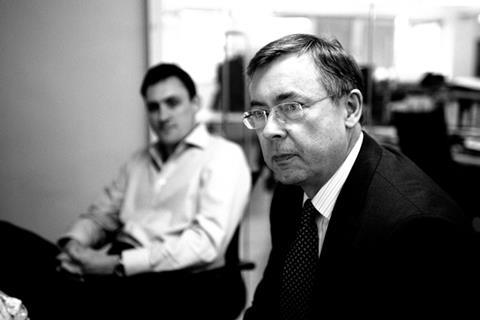
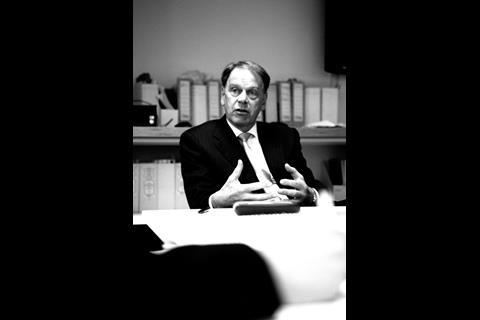
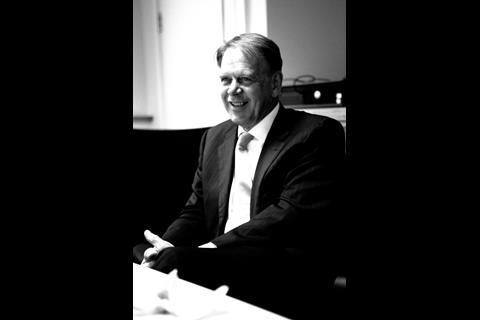
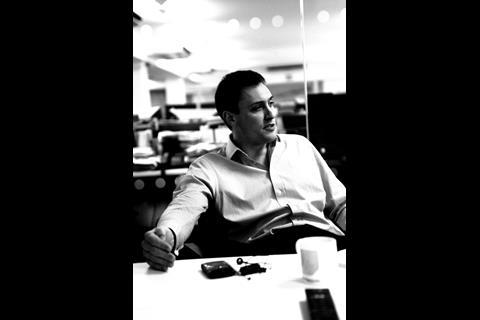
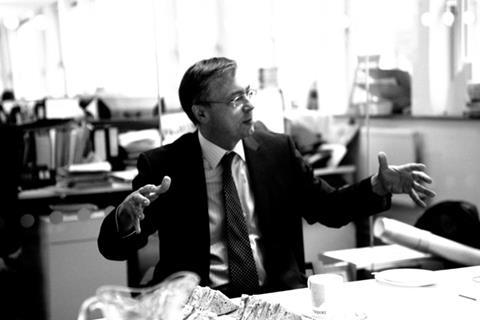






No comments yet